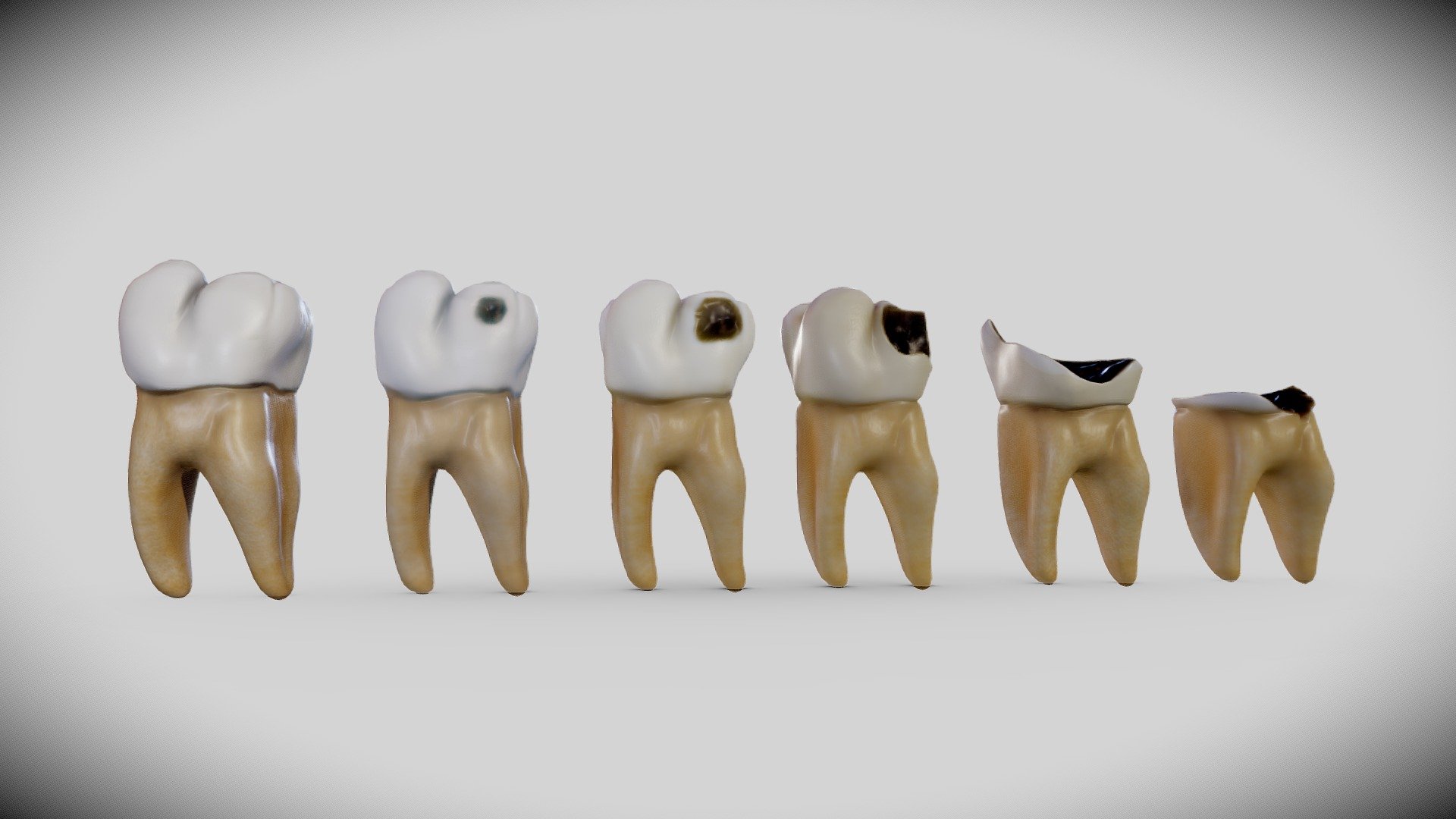“Don’t wait until it’s too late!”
Dental Caries is also known as Dental Cavity or Tooth Decay. It is the most wide spread disease in the world. People of all ages can have this disease.
Now let’s have a look at:
- What are Dental Caries?
Caries are permanently damaged areas in the hard surface of teeth that develop into tiny openings or holes.
According to location they are classified as
- Pit and fissure caries:
These usually affect horizontal planes of molars and back planes of teeth in front.
- Smooth surface caries:
These are usually found at joints between two teeth and gum line.
- Root caries:
These are usually located on the root surface of a tooth, usually close to or below the margin of gums. Any caries-prone patient having receded gums can develop root caries especially elder people.
How caries form?
When we don’t brush or floss properly our teeth over the period of time.
A sticky layer called plaque forms on our teeth.
Bacteria live in this plaque …and some of them are bad acid-producing bacteria.
These bacteria break down the starch and sugar present in food to acid causing caries or cavities.
- Why to worry about it?
Caries permanently damages the teeth once deceased. As caries is progressive disease, if not treated in early stages can result in cavities, tooth decay and ultimately into tooth loss.
As we know tooth is the only structure of human body that can’t repair itself once diseased so we should take care of our tooth.
- Symptoms of Dental Caries
Signs and symptoms vary depending on their extent and location. Caries in early stages may not have any symptoms but as they develop into cavities and decay gets larger may cause some symptoms such as
a) Tooth sensitivity
b) Swelling
c) Toothache or mild to sharp pain when eating or drinking something sweet, hot or cold.
d) Visible holes or pits in teeth
e) Brown, black or white staining on any surface of tooth.
- How to avoid them?
- Brush your teeth at least twice a day with toothpaste containing fluoride
- Floss regularly once a day and use mouthwash
- Drink water throughout the day to help rinse your teeth and boost saliva flow since dry mouth increases risk of infection
- Try to cut back frequent eating sugary, stinky and starchy food that cling to teeth eg. chips, hard candies, cookies, soda, coffee, alcohol, etc and eat healthy food
- Do regular dental checkups and cleanings even when mouth feels fine because you may not be aware that cavity is forming especially in kids
- What is treatment for it?
- Fluoride treatment:
If the cavity is just started it may help you to restore tooth enamel and reverse cavity in very early stages. Professional fluoride treatment contains more fluoride than found in tap water, toothpaste and mouth rinses. It may be liquid, gel, foam 0r varnish that’s brushed onto your teeth.
- Fillings:
It is also called restorations. It is the main treatment option when decay progresses beyond early stage. Fillings are made of various materials such as tooth-colored composite resins, porcelain or dental amalgam combination of several materials
- Root canals:
When tooth reaches the inner material of tooth i.e. pulp, you may need a root canal. It repair and save badly infected tooth instead of removing it. Here pulp is removed, medication is put into root canals to clear infection and pulp is replaced with a filling
- Crowns:
For extensive decay or weakened teeth, you may need a crown –a custom-fitted covering that replaces your tooth’s entire natural crown. Dentist drills away all decayed area and enough of the rest of your tooth to ensure a good fit. Crown may be made of gold, high strength porcelain, resin, porcelain fused metal or other.
- Tooth extraction:
Some teeth become so severely damaged that can’t be restored and must be removed and can be replaced with implant or bridge.
For more details pertaining to your condition schedule your appointment with our dentist DR. SWAPNIL B. PATIL at CDiC SMILES WAKAD or HINJEWADI. Call on 9970504270 to schedule your appointment now.

